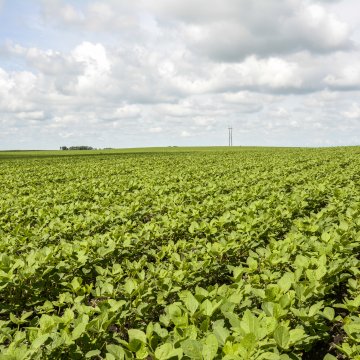November 27, 2025 | 22:26 GMT +7
November 27, 2025 | 22:26 GMT +7
Hotline: 0913.378.918
November 27, 2025 | 22:26 GMT +7
Hotline: 0913.378.918

Agricultural commodity prices have surged since last year due to a boom in Chinese imports and tightening inventories, leading the FAO last month to forecast record costs in 2021 for food importers.
However, prices of most agricultural commodities should fall slightly in real terms in the decade ahead, reverting to a long-term trend of improving production meeting rising demand from a growing population, the FAO and the Organisation for Economic Cooperation and Development (OECD) said in a joint report.
"The fundamentals don't say to us that we will be moving to a supercycle of commodity prices," Maximo Torero, the FAO's chief economist, said during a presentation of the FAO/OECD Agricultural Outlook 2021-2030.
Chinese demand will remain a driver of global agricultural markets, particularly for meat, fish and feed grains, but rising at a lower pace than in the past decade as China's population expands more slowly and consumption of some foodstuffs levels off, the report said.
Overall greenhouse gas emissions from agriculture are projected to increase by 4% over 10 years, not fall, with livestock accounting for some 80% of the rise - and a U.N. goal of "zero hunger" by 2030 remains far off.
"The problem is distribution and access to food in some regions," OECD Secretary-General Mathias Cormann said, reiterating his organisation's call for farm subsidies to focus more on infrastructure and innovation.
The 10-year outlook assumes an economic recovery following the coronavirus pandemic in which food markets prove resilient.
Net agricultural exports from Europe and Central Asia are seen doubling over the decade due to Russian and Ukrainian grain shipments.
In contrast, net imports to sub-Saharan Africa are projected to rise by 75% by 2030 due to higher imports of wheat, rice, maize and soybean.
(Reuters)

(VAN) A new study reveals how the simultaneous effects of ocean acidification, salinity and loss of oxygen are making the world more fragile.

(VAN) Hopes are growing that the creation of the first 3D turkey gut model could be a turning point in the battle against the virulent blackhead disease.

(VAN) Tyson, America’s biggest meat supplier, plans to shutter one of its largest beef processing plants as the industry continues to struggle with low cattle supplies and political pressure from Washington.

(VAN) New FAO study shows how digital solutions are empowering farmers and fishers to prevent losses and build resilient agrifood systems.

(VAN) Brazil's COP30 presidency pushed through a compromise climate deal on Saturday that would boost finance for poor nations coping with global warming but that omitted any mention of the fossil fuels driving it.

(VAN) Poultry farmers in the UK have been warned that they could face one of the worst winters yet for bird flu.

(VAN) Prices of main-crop paddy have risen sharply, with jasmine rice hitting 16,100 baht per tonne — the highest level in years.